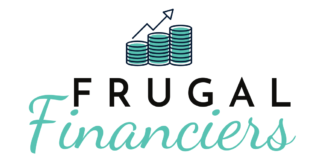In between figuring out where the bathroom is and how to stay on the good side of your new boss you may be wondering about the benefits of a 401(k) plan.
Should you enroll in the 401(k) plan?
To provide a little bit of help we wanted to explain some of the basics of a company 401(k) plan.
The plan, which is name after the corresponding tax code, is essentially a savings vehicle that allows you to put pre-taxed income into investments and may come with some company perks.
Here are the important aspects:
Tax Benefits | Benefits of a 401(k) Plan
The 401k plan provides a tax incentive to save for your retirement.
The money that you contribute to the plan is considered pretax which means two things.
- the income tax you would pay on the contribution is delayed
- your total income tax for the year is reduced because you will have lowered total recognized income
Let’s look at a simple example of a person that plans to contribute $5,000 to her 401(k) plan and has a marginal tax rate of 12%.
By contributing the $5,000 to her 401(k) plan, she does not have to pay any taxes on the amount this year.
Here are her savings:
$5,000 * 12% = $600
Now, individual taxes can be complex due to the many deductions, credits and other factors involved in computing taxes which could result in a lower amount than the example. But, alone it provides a clear picture of the potential tax benefits.
To get a rough idea of how much in taxes you may be able to delay, you can use a simple calculation.
This is the amount you contribute multiplied by your marginal tax rate or the tax bracket these earnings would fall into if you were not going to contribute them to a 401(k) plan.
Employer-Matching Contribution | Benefits of a 401(k) Plan
One of the most important aspects of the 401(k) is if and how much your employer will match your contribution.
This match is essentially additional salary that your employer is willing to pay to save in this plan.
The match amount typically outweighs some of the negatives that can come with employer 401(k).
Let’s look at an example:
A company provides all employees a full match of 5% of salary for contribution to 401(k).
So, what does this mean?
Well, the company above has agreed to contribute a 100% matching amount of money to the 401(k) account up to 5% of the employee’s salary.
If the employee makes $50,000 in salary each year, that means that the employer will match up to $2,500 ($50,000 * 5%) if the employee also puts in $2,500.
By taking advantage of the employer match you have instantly generated a “100% return”! Given that the average annual US stock market returns are around 5 – 10% historically, this is astounding.
Over the course of 40 years at a $2,500 yearly contribution, you will have contributed $100,000.
At a 7% average annual return, your account would grow to roughly $500,000 without an employer match. With the employer contribution, your account will grow to nearly $1 million.
Additionally, this does not account for raises in your salary that will increase the employer match. If your salary grows to $100,000, your employer would then match up to $5,000 if you contribute $5,000.
The employer match is a benefit designed to provide an additional benefit to your working for the companies that offer it.
If you are not taking advantage, you are leaving money on the table.
Investment Options and Fees | Benefits of a 401(k) Plan
There may be some downside to 401(k) plans depending on the company that you work for and it lies in the investment options and associated fees of the account.
Typically, your company chooses the available investment options for its employees.
The 401(k) plan may only have a few investment options.
For example, an ETF or mutual fund available in one 401(k) plan may not be in another plan. Additionally, the investment options could have high management fees or the 401(k) plan could have high fees.
To paint a picture, your investment fees could be over 1.00% a year which means that instead of getting an average return of 5% you are now getting an average return of 4%.
If your account only has investment options that charge over 1.00% in management fees or the options are limited, you should consider comparing the fees and investment options of other savings vehicles like an IRA (individual retirement account) for your savings after the employer-matching contribution.
A traditional IRA has similar tax benefits as the 401(k) plan.
Final Thoughts on Benefits of a 401(k) Plan
The benefits of a 401(k) plan offered by your company are numerous! If you simplify your finances and get a good strategy in place, there is no reason why you shouldn’t retire a millionaire!
We hope this post helped you navigate the benefits of a 401(k) plan – let us know if you still have questions and we can write another post!





Leave a Reply
Your email is safe with us.
You must be logged in to post a comment.